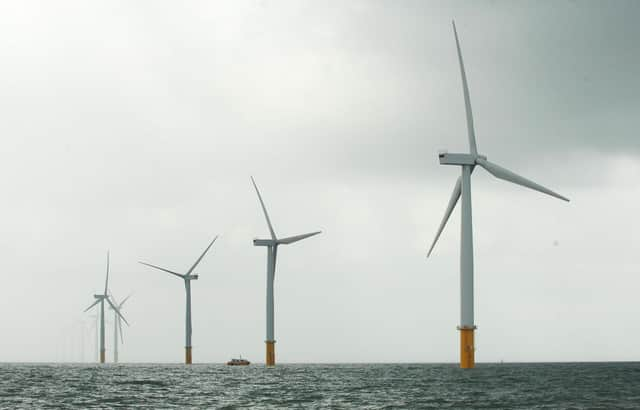The changing energy landscape: a strong economy and environmental protection - Mike Tholen


Across the spectrum, there is one recurring theme: we all want a low carbon energy future that cuts emissions and protects vital jobs.
While we need to deliver on the UK’s net zero target, we need to do this in a way that avoids harming livelihoods and damaging our economy. This is particularly true in Scotland, where the industry supports around 100,000 jobs.
Advertisement
Hide AdAdvertisement
Hide AdSo, what is the UK offshore oil and gas industry’s role in achieving a low carbon energy future that supports a strong economy?
The industry is changing and already investing in, and developing, the technologies needed to deliver on our climate goals. A recent survey from Aberdeen & Grampian Chamber of Commerce’s Research Chamber, in partnership with the Fraser of Allander Institute and KPMG UK, shows our industry is ‘on the cusp of a dramatic transformation’ when it comes to a greener future.
Hydrogen, carbon capture & storage and wind all play key roles in the pathways to net zero identified by the likes of the UK Government’s Committee on Climate Change. These technologies are vital in cutting emissions today and at the same time, using homegrown resources can help reduce our reliance on imported oil and gas from countries where emissions standards might be lower.
Several landmark projects are already underway in Scotland. Equinor’s Hywind Scotland is the world’s first floating offshore wind farm and can produce enough electricity to power around 20,000 Scottish homes. Floating wind power is a great example of a low carbon technology that was made possible by the expertise of the oil and gas industry. The first phase of the Acorn carbon capture storage (CCS) Project in St Fergus, Peterhead – which could be delivered by the mid-2020s - would capture around 300,000 t/yr of existing CO2 emissions from the St Fergus gas terminal, to then be injected into the Acorn CO2 Storage Site.
As well as reducing emissions, this investment from our industry in the UK’s greener future will both support UK jobs and help to develop the new energy careers of the future. A report published at the end of May from Aberdeen’s Robert Gordon University highlights the transferability of oil and gas workers skills to adjacent energy sectors and predicts there could be as many as 200,000 jobs in 2030 for the offshore energy workforce. Continued investment in and support of the greener energies being developed by our industry will enable a managed transition of the tens of thousands of oil and gas workers into the broader offshore energy workforce.
Our industry ultimately has a vital role to play in achieving the low carbon energy future we are all striving for, using our expertise to help the UK Government achieve its ambition of net zero by 2050 while also playing a key role supporting jobs and creating new careers.
Mike Tholen, OGUK Sustainability Director
Comments
Want to join the conversation? Please or to comment on this article.